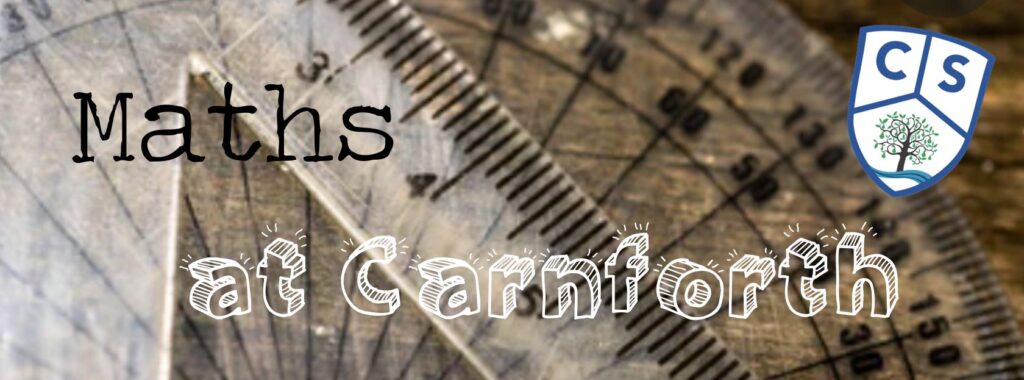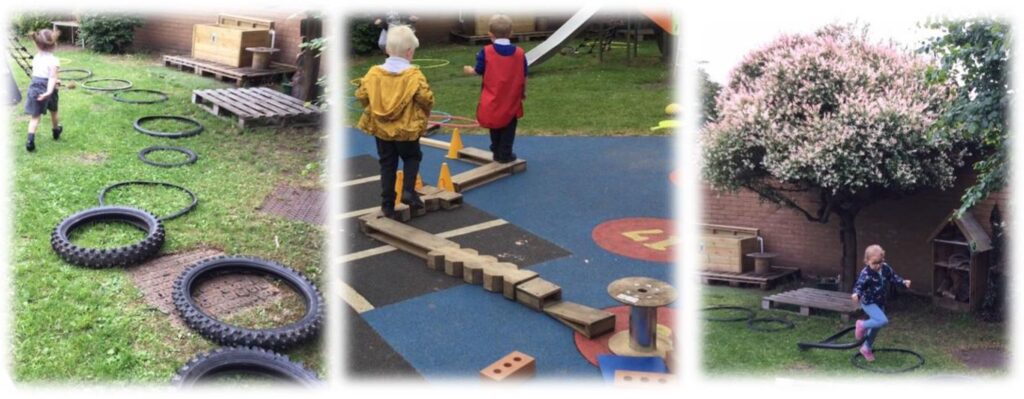Intent
The 2014 National Curriculum for Maths aims to ensure that all children:
· Become fluent in the fundamentals of Mathematics
· Are able to reason mathematically
· Can solve problems by applying their Mathematics
At Carnforth School, these skills are embedded within Maths lessons and developed consistently over time. We are committed to ensuring that children are able to recognise the importance of Maths in the wider world and that they are also able to use their mathematical skills and knowledge confidently in their lives in a range of different contexts. We want all children to enjoy Mathematics and to experience success in the subject, with the ability to reason mathematically. We are committed to developing children’s curiosity about the subject, as well as an appreciation of the beauty and power of Mathematics equipping them with the knowledge to succeed in life.
Implementation
At Carnforth School, we want to foster a love for and a positive and confident attitude towards number and Mathematical concepts. We achieve this by encouraging children not to be afraid to make mistakes and use this information to improve.
The teaching of Maths at Carnforth School follows the programmes of study and objectives set out in the 2014 National Curriculum. The objectives are grouped into units of study and the mathematical skills of fluency, reasoning and problem-solving are taught throughout each unit. At Carnforth School we have devised a personalised long term plan which allows children in our school to achieve fluency and depth in their learning, and to have the opportunity to apply new skills and knowledge in reasoning and problem solving activities, which are key aspects of the National Curriculum.
Our ethos for teaching Maths is based on the CPA (concrete, pictorial and abstract) approach that develops a deep and sustainable understanding of Maths in children. Children (and adults!) can find Maths difficult because it is abstract. The CPA approach builds on children’s existing knowledge by introducing abstract concepts in a concrete and tangible way. It involves moving from concrete materials, to pictorial representations, to abstract symbols and problems.
Alongside the CPA approach at Carnforth school, we are embedding varied fluency. This is where planning is centred around 6 main teaching approaches; explore, teach, do it, secure it, discuss it, review it. Varied fluency allows the teaching of mathematical concepts to be highly matched to the pupils dependent on where they are on the continuum and provides them with the opportunities to deepen their understanding of methods and concepts in an environment that is supportive and rich in discussion.
In addition to this, a strong emphasis is placed on developing the children’s mental Maths skills; children practice their mental Maths daily and have weekly timetable challenges: entry level, qualifier, bronze, silver, gold, platinum, championship and ultimate pro. We also use the Times Table Rock Stars programme for children to develop their times tables speed and mental agility online.
Our children enjoy both discrete Mathematics lessons where they learn and develop their skills and cross-curricular opportunities where they use and apply existing skills – for example, measuring temperature in Science.
Impact
The school has a supportive ethos and our approaches support the children in developing their collaborative and independent skills, as well as empathy and the need to recognise the achievement of others. Children can underperform in Mathematics because they think they can’t do it or are not naturally good at it. The National Curriculum addresses these preconceptions by ensuring that all children experience challenge and success in Mathematics by developing a growth mindset. Regular and ongoing assessment informs teaching, as well as intervention, to support and enable the success of each child




